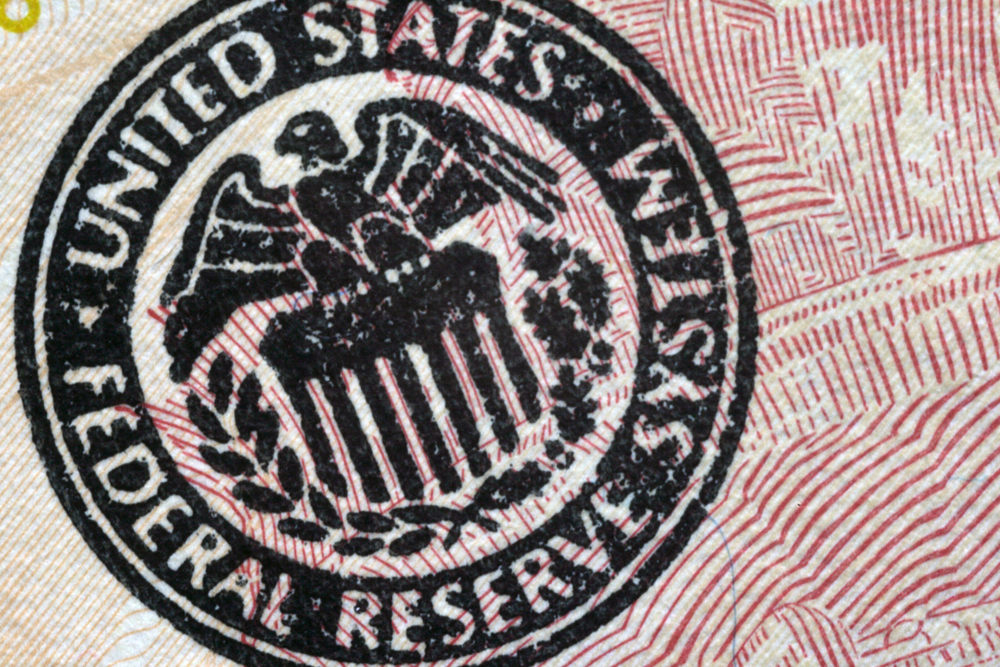
Remember back in February 2018, when Venezuela launched the Petro? When even the United States—which under President Trump has become remarkably friendly to investors of nearly any stripe—declared it part of an effort to “circumvent US sanctions by issuing a digital currency,” you know it's not a welcome development. Yet at the time, it did seem to be part of a larger development in the works, and now, word has emerged that the Federal Reserve is considering issuing its own digital currency.
An October Letter Turns Into a November Surprise
It's not exactly the first time that the United States has considered the issuance of cryptocurrency. Back in October, a bipartisan effort from the House of Representatives—specifically, Rep. Bill Foster (D-Illinois) and Rep. French Hill (R-Arkansas)—put a letter to the current Federal Reserve Chairman Jerome Powell that suggested a closer look at the concept of cryptocurrency. The letter also asked if the Fed was currently considering a crypto coin issue, and if so, what kind of impact it might have on the dollar as a whole.
Now, we have more insight on the outcome of that letter, as new reports suggest that the Fed is indeed looking into a cryptocurrency issue, though its exact emergence is as yet unclear. In fact, a response from the Fed noted that it's not currently developing such an issue, but it is still at work measuring potential costs and benefits therein.
A Dramatic Heel-Face Turn That a Lot of Countries Are Taking
The US and Venezuela aren't the only countries looking into such measures. Several countries worldwide have already issued their own cryptocurrency, including Tunisia, Singapore, Senegal, Ecuador, and even China. That last is particularly noteworthy as China had taken a fairly aggressive stance against keeping cryptocurrency out of the country altogether. Several other countries are looking to follow suit in the near-term, including Japan, Russia and Sweden.
This doesn't even count the host of altcoins and corporate-issued cryptocurrencies out there, including the still-under-development Libra from Facebook. Yet one thing seems to be true: we as a society are increasingly moving toward cryptocurrency, not away from it. The president of the Federal Reserve branch in Philadelphia, Patrick Harker, noted: “It is inevitable. I think it is better for us to start getting our hands around it.”
Cryptocurrency's Biggest Draw
It's easy to wonder here why cryptocurrency is suddenly getting so much attention at the national level. There are a host of possible reasons why, starting with the notion that a purely digital currency has very, very little overhead. There are no printing—or minting—costs associated with cryptocurrency. There's no need to buy ink or paper or special threads that get woven into a bill to reduce its odds of being counterfeited. There's no need to buy metal to stamp coins. There's also no more risk that people will start melting down old pennies for their copper value because the coins are actually worth more than they're denominated for as raw metal.
Perhaps the biggest draw is especially appealing in an increasingly globalized world: cross-border functionality. Cross-border trade these days, especially for individuals, can be a challenge on par with the best. Trying to sell large quantities of goods to other countries requires a lot of wrangling, particularly when it comes to how to pay for them. Thanks to the dollar's primacy, this is a little less complex than it might be, but a cryptocurrency would smooth the way even further. Since a cryptocurrency can be readily transmitted and with comparative privacy—one of the reasons it was so heavily favored by criminals—it can be extremely useful in getting cash to other countries to buy goods and services.
Flattening the hills for international trade, in turn, improves the odds it will be engaged in to begin with. That means a boost to the taxable base and more revenue for the governments involved. It's not every day the government gets a chance to offer up a win-win, but cryptocurrency may well represent the best way we've seen yet to get there.
Before you make your next trade, you'll want to hear this.
MarketBeat keeps track of Wall Street's top-rated and best performing research analysts and the stocks they recommend to their clients on a daily basis.
Our team has identified the five stocks that top analysts are quietly whispering to their clients to buy now before the broader market catches on... and none of the big name stocks were on the list.
They believe these five stocks are the five best companies for investors to buy now...
See The Five Stocks Here
Just getting into the stock market? These 10 simple stocks can help beginning investors build long-term wealth without knowing options, technicals, or other advanced strategies.
Get This Free Report
Like this article? Share it with a colleague.
Link copied to clipboard.